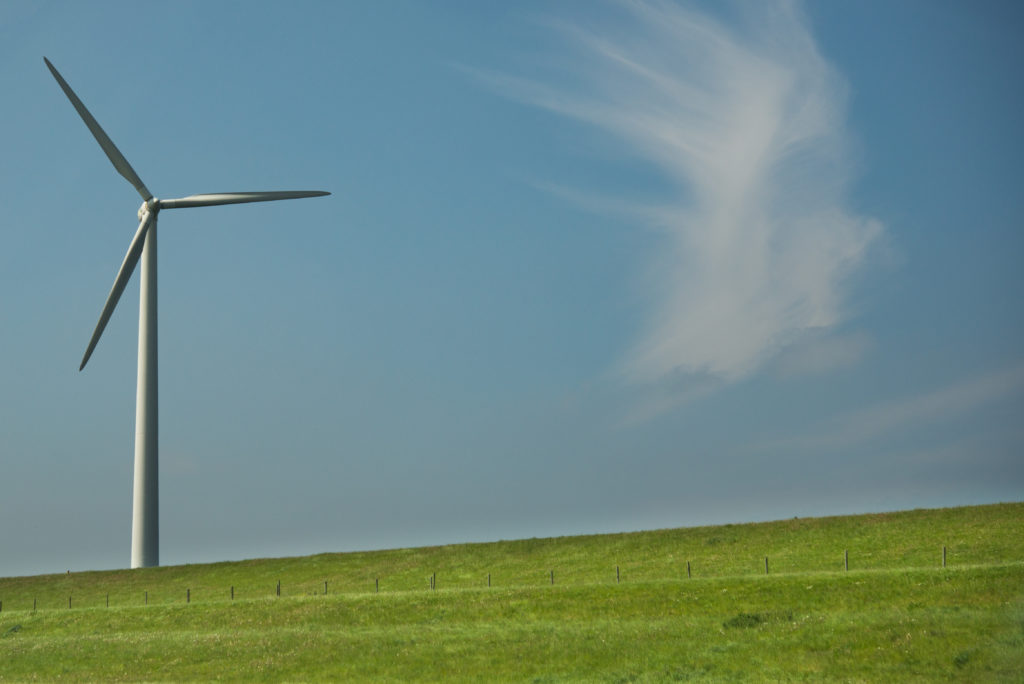There’s been a lot of national discussion recently about the future of our energy system. Saving coal jobs. Adding wind and solar energy. Electric vehicles. Pipelines. The list goes on and on.
Much of that conversation ignores what’s happening in local communities across the country. And it rarely includes perspectives, concerns, and ideas from community members. Folks in rural communities often get left out of the conversation entirely, unless it’s to score political points.
But it doesn’t have to be this way. If we want to achieve a more resilient future, rural communities must be recognized for the role they play in our agricultural, climate, and energy systems.
That’s why we’re excited to launch the second phase of our Rural Climate Dialogues program, a collaborative endeavor between the Jefferson Center, the Institute for Agriculture and Trade Policy, and rural communities across Minnesota to promote perspectives and ideas from Greater Minnesota. We’ll share information, discuss solutions, and connect communities across the state to drive energy policy that works for everyone.
The Rural Climate Dialogues
In 2014, the Jefferson Center and IATP launched the Rural Climate Dialogues, an engagement program inviting residents of Stevens, Itasca, and Winona counties to discuss solutions to extreme weather and the changing climate.
The dialogues worked like this: we gathered a randomly selected but demographically diverse group of citizens in each community. Over the course of multiple days, they were tasked with creating a shared, community-based response to the local impacts of extreme weather and climate change. At the end of the deliberation, the community produced their own set of recommendations that responded to their needs, priorities, concerns, and values.
Following the events in three counties, we hosted the Rural Climate Dialogues State Convening in Saint Paul, inviting community members to bring their top priorities and experiences to share with one another and with state-level policymakers. Many participants were interested in pursuing a transition toward a cleaner energy future; strengthening infrastructure like roads, housing, and other utilities to be more resilient; and improving the stewardship of rural land by adopting more sustainable agricultural practices and promoting watershed-based planning and management strategies. The recommendations are available to political leaders that may not hear these voices otherwise, providing them with a better understanding of rural residents’ attitudes, ambitions, and ideas.
Community Actions
Not long after the convenings, communities started putting their recommendations into action. Here’s just a few of the initiatives that are underway:
- In Winona County, dialogue organizers and participants received a Minnesota Pollution Control Agency grant to carry out dialogue recommendations that has strengthened Xcel Energy’s residential energy auditing services in rural Minnesota.
- The Itasca Clean Energy Team secured a $5000 grant to conduct a feasibility study assessing available community solar options.
- The Morris City Council signed a climate protection and technical assistance agreement with Saerbeck, Germany to explore models for developing local renewable energy sources and to drive local economic development.
What’s next?
We’ll continue to support communities in implementing the recommendations they develop. Next month in Stevens County, we’ll be discussing the basics of the energy system, including questions like “How is our energy generated?”, “Where is the future of our energy headed?”, and “What exactly is the grid, anyway?” We’ll then focus on potential options and solutions to see what might help Stevens County achieve its goals.
We’ll launch similar efforts in Itasca County and Winona County over the coming months.
At these conversations, we’ll also consider shared values:
- What do community members care about most when it comes to energy: community resiliency, local jobs and investment, clean energy, or low costs?
- How can we maximize our shared priorities?
We’ll also look at the goals of the community, determining what each community wants the energy system to accomplish.
Finally, we’ll take all of these answers and ask community members to consider the pathway forward to their desired energy future. What actions can they take to influence their energy system? How can they weigh in at the regional electrical utility?
We’re extending the invitation to both public officials and utility stakeholders to attend the conversations, and we will work with state agency officials from the Department of Commerce, the Environmental Quality Board, the Minnesota Pollution Control Agency, and more to help make the energy recommendations a reality. Over the long term, we hope to grow a statewide rural network of community members and leaders that will support and advocate for representative climate policy for years to come.
Rural communities in Minnesota aren’t the only ones dealing with the impacts of extreme weather, and this approach can serve as a model for other states working on climate change engagement. We can help overcome the misperception that all rural communities feel the same way about action on energy policy: indifferent or opposed. Instead, rural Minnesota communities will have the opportunity to tell a different story – one in which rural residents are powerful leaders in an energy future representing their needs and priorities.



